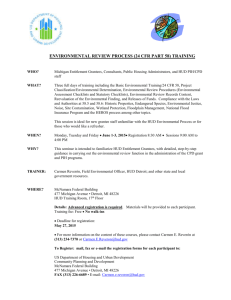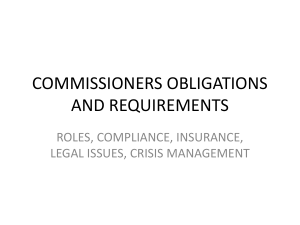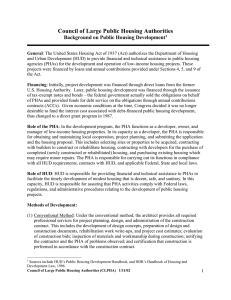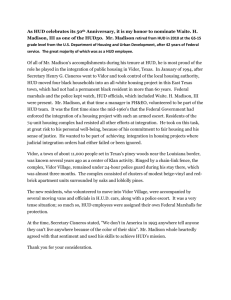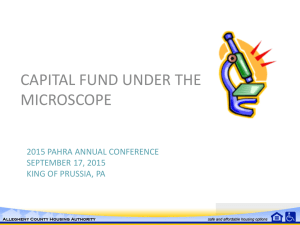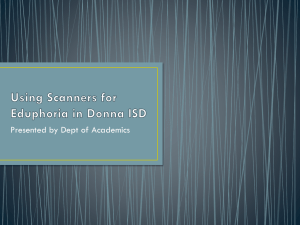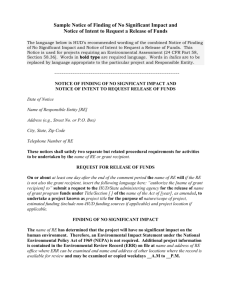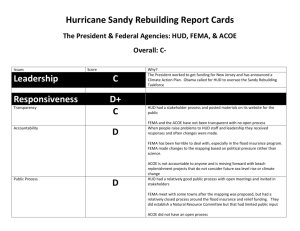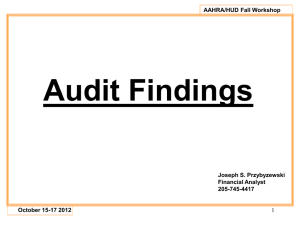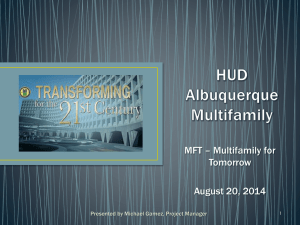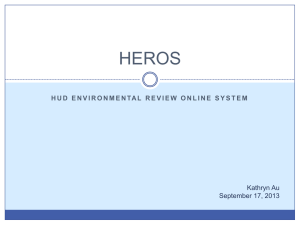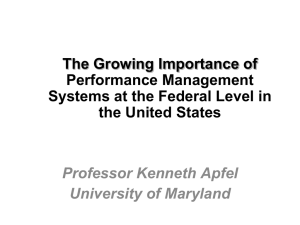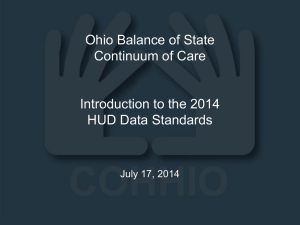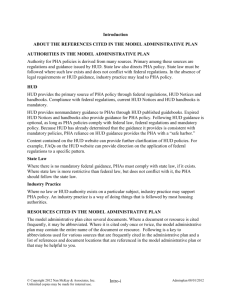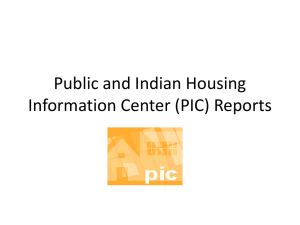Document Imaging System
advertisement
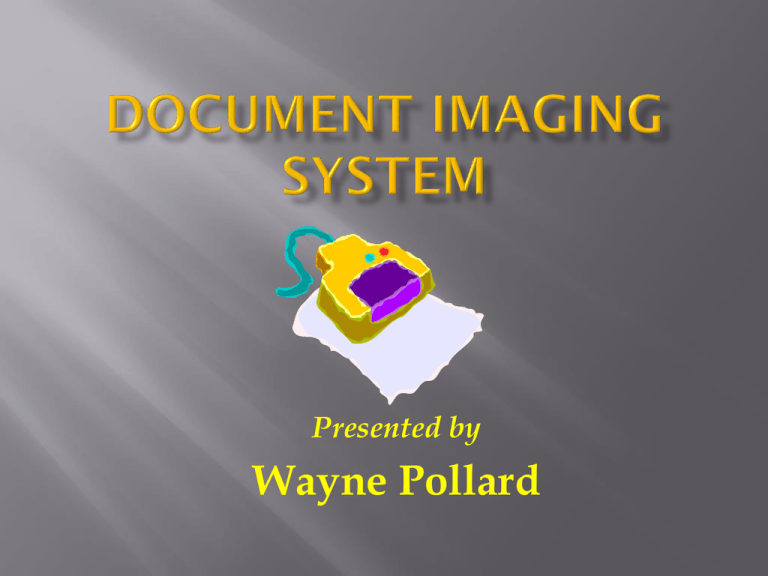
Presented by Wayne Pollard Tremendous Value If Carefully Planned and Executed ADVANTAGES: Increased access to documents Fewer lost documents Ability to review a file when it is not physically present Great for Audits Physical security of mail/files Save on office space (1 Filing Cabinet = 600 MB of disk space) Historically, HUD had not provided guidance. Recently, Nicole Faison, HUD's Director of Public Housing Programs, issued new guidance encouraging the use of electronic files: "It is the position of HUD Headquarters that the PHA’s record keeping obligations are outlined in its Annual Contributions Contract (ACC) and various HUD regulations, which do not prohibit the electronic retention of documents. We are not aware of any HUD statutes or regulations that specify the format in which documents are retained. In short, PHA’s may maintain electronic records/files. It should be noted that the Office of Management and Budget (OMB) encourages Federal agencies and its business partner to maintain electronic files versus paper files. With the publishing of the Refinement of Income and Rent Rule, OMB encouraged HUD to include the language that electronic retention of the form HUD-50058 fulfills the record retention requirement." How efficient is our Workflow? Do you have issues with staff filing documents timely? How much do you spend on Paper, Postage, Etc.? Are you having Storage Issues? Are you spending a lot of time Searching for Case Files? What is your staff comfort level with technology? Traditional Files: Electronic Files: • Shop Around •Talk with other PHA’s who have progressed to the paperless society • Look at demos •Have the vendor come to your PHA for a presentation •Look at Current Cost vs. Future Cost •Appoint a Committee to look at our current workflow and see how a paperless system would enhance our daily performance COST OF EMPLOYEE COST OF SCANNING SYSTEM Position Salary/Benefits Equipment/Software Clerk $35K Imaging Software Counselor $52k Inspector $48K Cost Heavy Duty Scanner $6,500 Medium Duty Scanner $3,500 Light Duty Scanner $700.00 SCANNERS •Production style scanner that can handle 40-50 pages per minute •Duplexing recommended •If multiple offices – each office will need a scanner DISK SPACE •1 filing cabinet = 600 MB of disk space •Cabinets * 600 * 2 (backup) = disk space required MONITORS •Dual monitors for Housing Counselors allow easy viewing of documents and data entry screens at same time DECIDE IF YOU ARE GOING TO BACK FILE Identify which documents will be converted and which will not. RETENTION REQUIREMENTS Look into HUD regulatory requirements for retaining records, they vary by program. CONSIDERATION •Scan the entire contents of all active tenant files. •Leave inactive files until they can be safely destroyed. • Look into outsourcing options for scanning of old files. IN-HOUSE vs. OUT SOURCED BACK FILE CONVERSION One-time process: Outsourcing might be better option OUT SOURCING CONSIDERATIONS: •Type of equipment and technical experience •Project turnaround time •Security •Quality control procedures •Cost •Access to files (if needed) •File names and indexing •Loose Mail •New Admission Files •Interims •Annual Re-Certification KEEP STAFF INVOLVED IN THE PROCESS LET STAFF VENT THEIR CONCERNS LET STAFF KNOW IT’S OK TO LET GO OF THE PAPER. Mobile Inspection IPAD Increased Daily Inspection Take photos upload to the software Email inspect results to owner Efax/Email/Web Sites We require owners to obtain email address Send notifications to owner via email Request to send information to our office via EFAX
